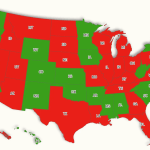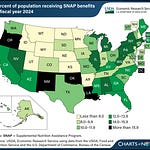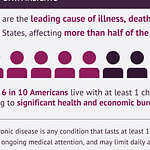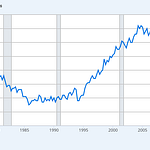I used the above photo in my first post for this newsletter on September 15, 2021, and a few other times in various posts in the last two years. I’m celebrating my second anniversary of writing Crime and Punishment, along with ringing in the official change of seasons with today’s post, and I thought it might add a bit of nostalgia to include this photo again. Besides, I love the silvery, shimmering look of olive tree leaves, and even though this isn’t the best photograph, the trees are especially striking on a sunny day.
On a more practical note, I also want to announce a change to both the title and url of this newsletter—this is the last post you will receive under the name Crime and Punishment. The next post in your in-box will use the new title, The Poverty Trap: Why The Poor Stay Poor In America, and the new url will be: povertytrap.substack.com. A writer friend of mine suggested the change, and I knew immediately it would be a good fit. It’s obviously more descriptive of the topic than “crime and punishment” and leads nicely into the subtitle that follows. In fact, my research for this newsletter over the last two years has confirmed that poverty is indeed a “trap” for millions of Americans, and it seems to have a tighter grip than ever.
As others who write on this platform, news organizations across the country and I have said repeatedly, poverty, and the ability of the average person to break the cycle of poverty for themselves and their family is almost an insurmountable task. And this cycle is put in place by the myriad policy choices made by our elected officials.
Here’s one recent example: According to a report published by the Census Bureau on September 12, 2023, “The Supplemental Poverty Measure (SPM) rate in 2022 was 12.4%, an increase of 4.6 percentage points from 2021.” The SPM takes into account the differences in the geographical cost of living and the level of government assistance given to low income individuals, and thus is viewed as the most accurate measure.
This increase followed two years of historically lower poverty levels directly attributed to new and expanded pandemic aid programs, according to a recent New York Times article. Even worse, the child poverty rate soared from a record low of 5.2% in 2021 to 12.4%, in 2022, and this horrific increase, resulting in 5.2 million more children living in poverty, is attributable to the failure of Congress not to extend the expanded child tax credit. The expansion of this credit was part of the March 2021 American Rescue Plan, but it expired at the end of that same year.
It’s clear that when government provides direct, monetary aid to individuals and families, those who receive that aid are pulled out of poverty. When the aid is withdrawn, especially within a short time frame, these same Americans are thrown back into poverty. Why, then, would elected officials choose by their vote, to keep people in poverty?
This is the main question I will use to explore why over 39 million Americans tend to stay trapped in poverty. And as part of this exploration, I will put a sharper focus on politics and the choices of our elected officials as we round the corner to the next presidential election.
———————————————————————————————
I’d love to hear your thoughts on this newsletter’s name change and its sharper focus on politics and the choices of elected officials as it relates to the increasing epidemic of poverty in America. Please leave a comment in the Comment Section below:












